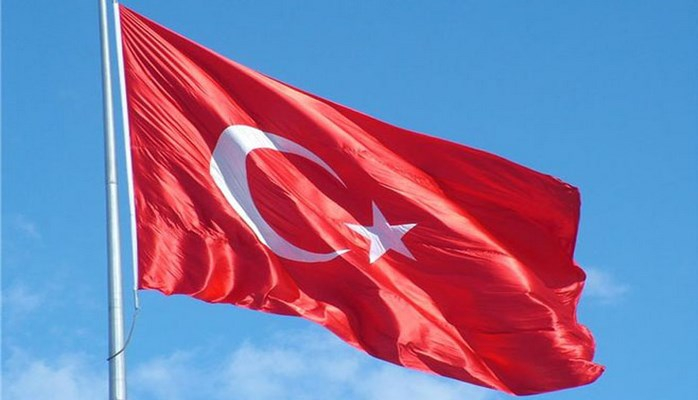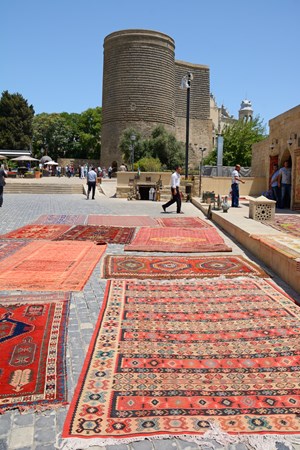UOT 327; 930.22
DOI:10.30546/3006-0346.2023.6.78.5
Sultan Zahidov
Bakı Dövlət Universitetinin Diplomatiya və müasir inteqrasiya prosesləri kafedrasının dissertantı
E-mail: [email protected]
Резюме
В период правления ПСР политика Турции на Ближнем и Ближнем Востоке до «арабской весны» в основном основывалась на концепции «стратегической глубины», выдвинутой Ахметом Давутоглу, и инструментах, предоставляемых этой концепцией. Согласно этой концепции, географическая и историческая глубина Турции обусловила необходимость проведения Турцией более активной внешней политики на фоне нового динамизма, возникшего в международных отношениях после «холодной войны». Концепция предусматривала, что Турция может увеличить свое влияние в регионах Ближнего и Среднего Востока, Балкан, Кавказа и Центральной Азии, обеспечивая при этом внешнюю политику Турции такими инструментами, как «нулевые проблемы с соседями», ритмичная и активная многомерная политика. На основе этой политики, основанной на механизмах мягкой силы, прогнозировалось, что Турция увеличит свое влияние в этих регионах посредством демократии, этнических и культурных ценностей и религиозных связей. Хотя внешняя политика, основанная на стратегической глубине, в течение определенного периода времени оказывала положительное влияние на влияние Турции в ближневосточном регионе, из-за событий, разворачивающихся в регионе после «арабской весны», краха дипломатии «нулевых проблем с соседями» и угроза терроризма на фоне геополитической борьбы региональных и великих держав, чтобы обеспечить интересы безопасности, ему пришлось отказаться от этого политического курса и прибегнуть к механизмам жесткой силы и элементам Реалполитики. В статье анализируются основные положения концепции «стратегической глубины» и то, как они формируют современную ближневосточную политику Турции, в том числе причины отказа Турции от этой концепции, особенно после «арабской весны», включая основные аспекты перехода от «стратегической глубины» к современной ближневосточной политике Турции.
Ключевые слова: Стратегическая глубина, Ближний и Средний Восток, неоосманизм, реалполитик, мягкая сила, жесткая сила, Политика «Нулевых проблем с соседями», ритмичная дипломатия.
Summary
During the AKP period, Turkey's policy in the Near and Middle East before the Arab Spring was mainly based on the concept of "Strategic depth" put forward by Ahmet Davutoğlu and the tools provided by this concept. According to this concept, Turkey's geographic and historical depth made it necessary for Turkey to pursue a more active foreign policy against the backdrop of the new dynamism that emerged in international relations after the Cold War. The concept envisaged that Turkey could increase its influence in the regions of the Near and Middle East, the Balkans, the Caucasus and Central Asia, while providing Turkish foreign policy with tools such as “zero problems with neighbors”, a rhythmic and proactive multidimensional policy. Based on these policies and soft power mechanisms, Turkey was predicted to increase its influence in these regions through democracy, ethnic and cultural values, and religious ties. Although a foreign policy based on the Strategic depth has had a positive impact on Turkey's influence in the Middle East region over a period of time, due to the events unfolding in the region after the Arab Spring, the collapse of "zero problems with neighbors" diplomacy and the threat of terrorism against the background of the geopolitical struggle of regional and great powers, in order to ensure security interests, he had to abandon this political course and resort to the mechanisms of hard power and elements of “Realpolitik”. The article analyzes the main arguments of the concept of “Strategic depth” and how they shaped Turkey’s modern Middle East policy, as well as the reasons for Turkey’s abandonment of this concept, especially after the Arab Spring, including the main aspects of the transition from the “Strategic depth” to the modern Middle East policy of Turkey which is based on mainly “Realpolitik”.
Key words: Strategic depth, Near and Middle East, Neo-Ottomanism, Realpolitik, Soft power, Hard power, “Zero problems with neighbors” policy, Rhythmic diplomacy.




